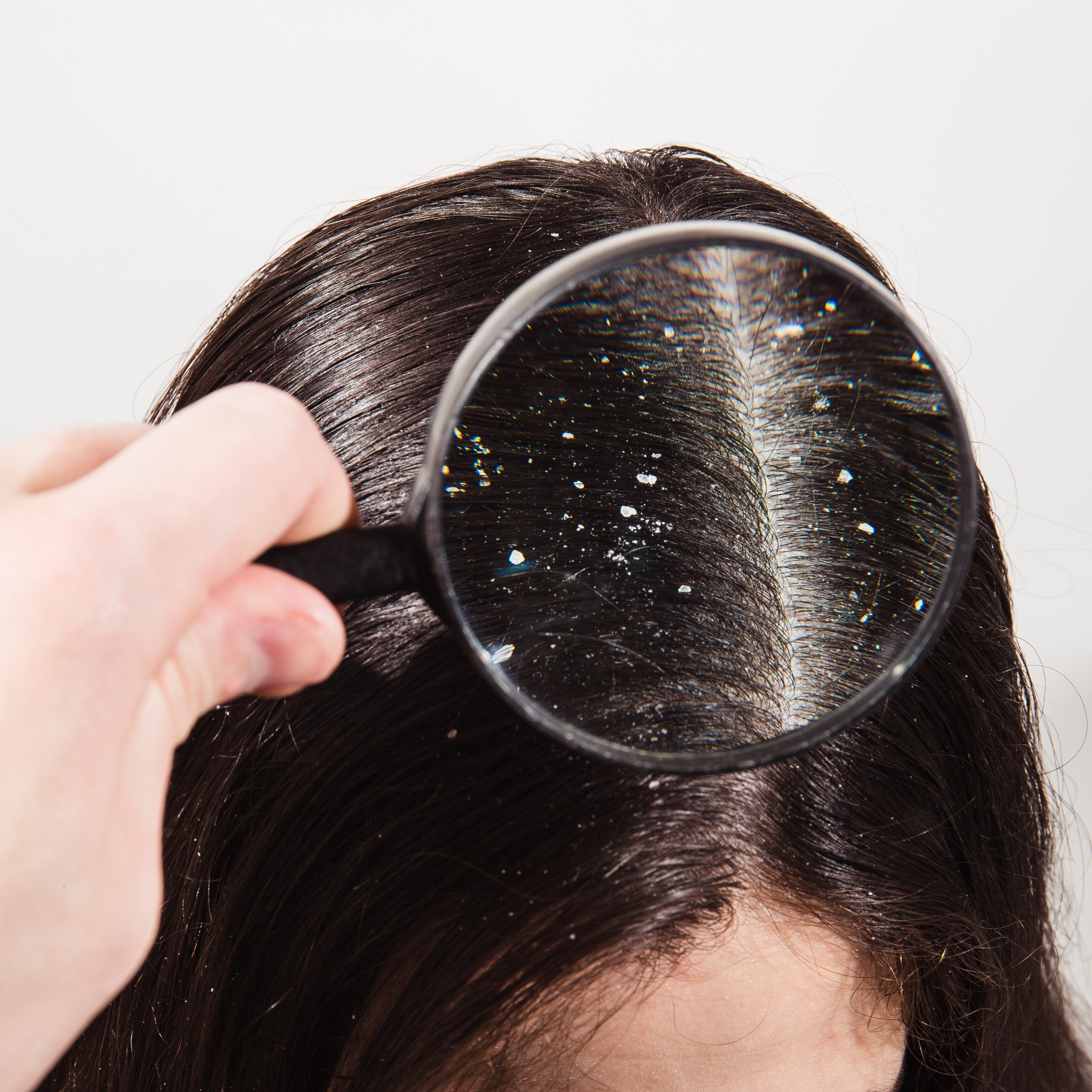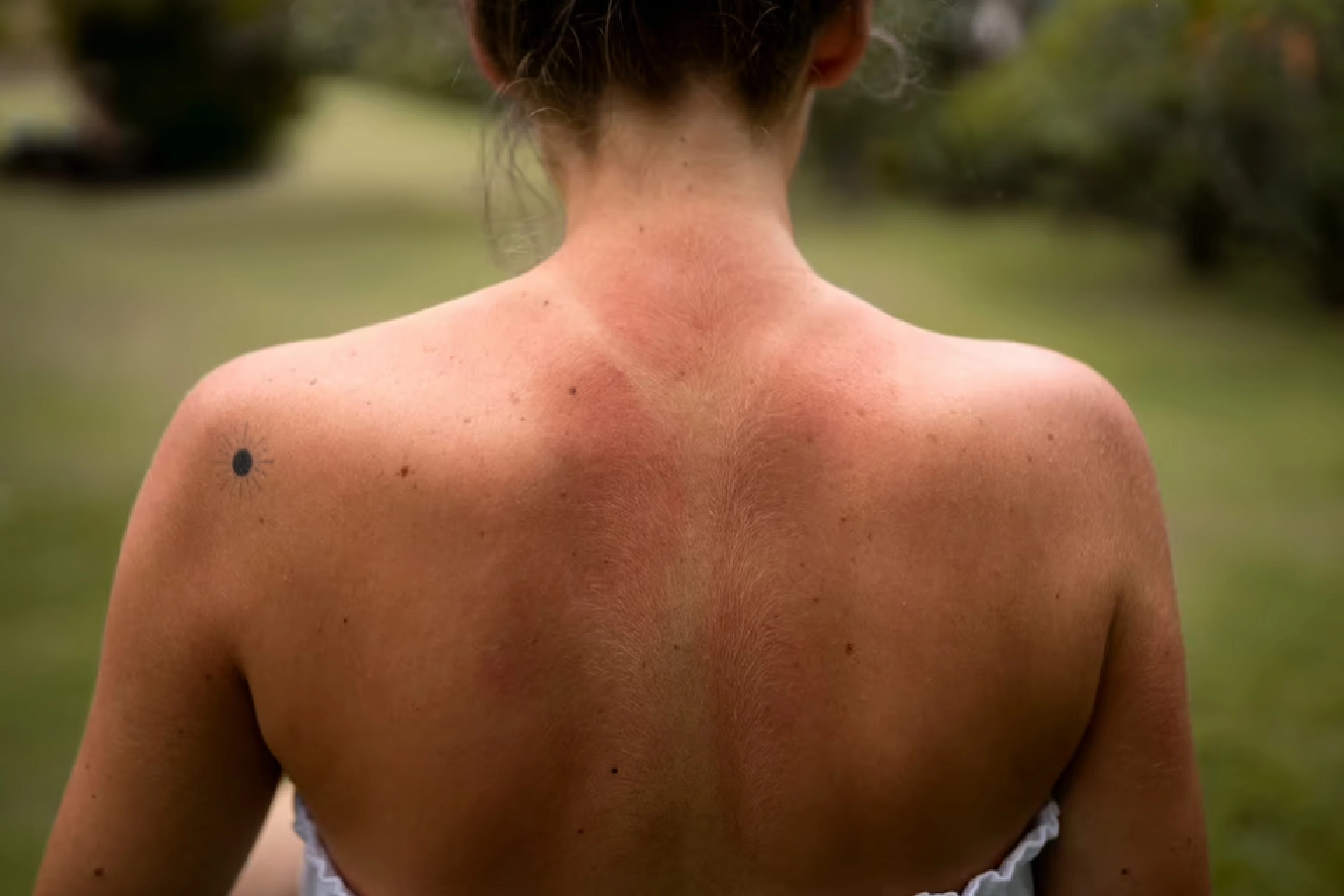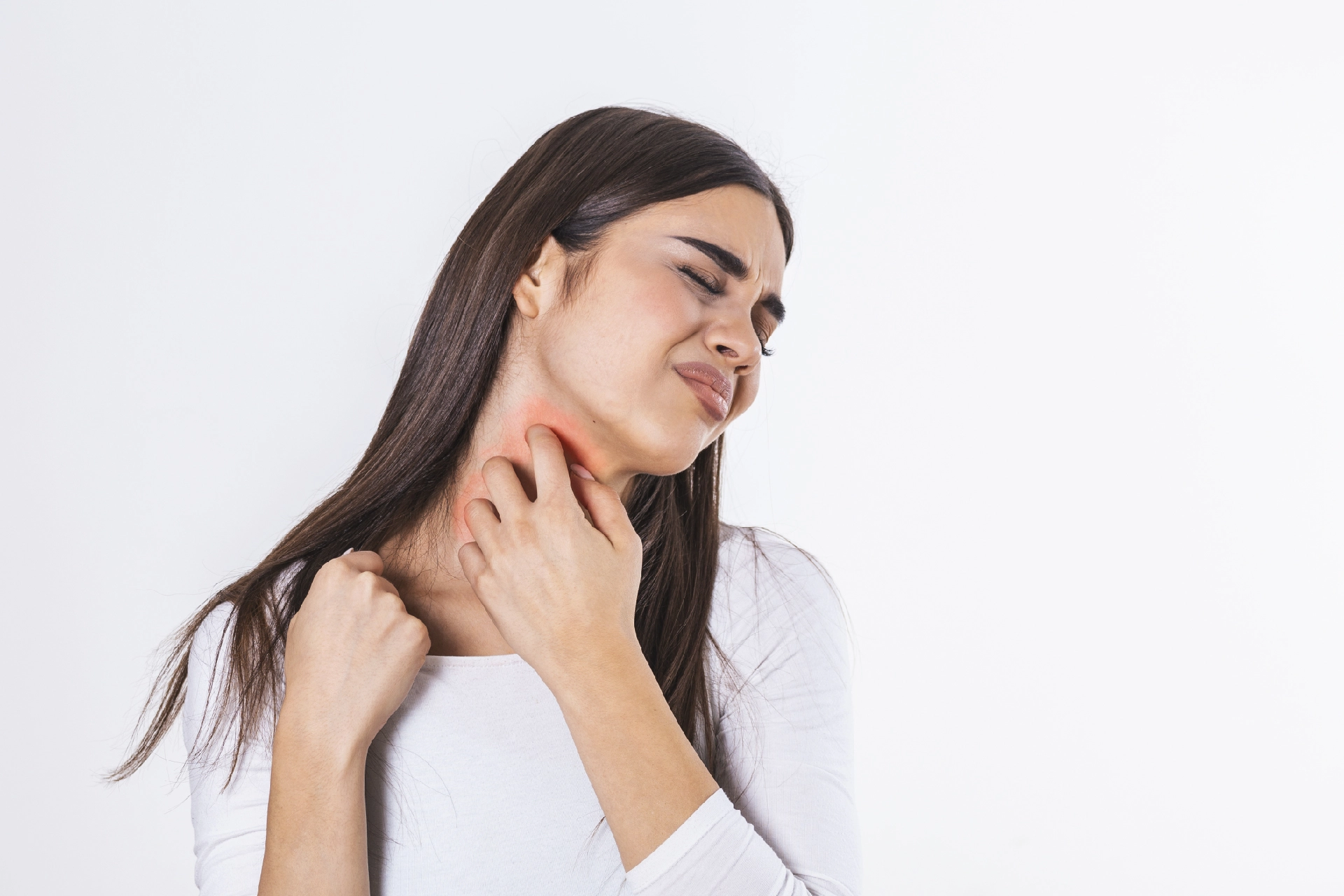Dermatologist | 9 min read
What Is Dandruff: Symptoms, Causes, Prevention, Remedies
Medically reviewed by
Table of Content
Key Takeaways
- Dandruff is a skin condition affecting the scalp which results in dry white flakes and sometimes itchiness
- It doesn’t result from poor hygiene, but genetic and environmental factors do play a role
- The main cause being skin cells growing and shedding too fast
Ever came across the embarrassing situation of having those white flakes on your shirt/dress with people around? Or are you always conscious when wearing black? Dandruff is a very common condition and is known to all. Some people might have tried all kinds of anti-dandruff shampoos available in the market, yet keep getting them back, wondering about the reason and remedy both. We shall address a few dandruff-related common queries and natural remedies to get rid of the same.
What is Dandruff?
Dandruff affects most people at some point in their lives, but it is more prevalent from adolescence to midlife. Seborrheic dermatitis, allergic responses, eczema, psoriasis, and other conditions are among the many potential causes. The risk of acquiring dandruff is influenced by a number of factors, such as an individual's age, environment, level of stress, health, and the products they use on their hair. Although poor hygiene is not a factor, flakes may be more evident if a person does not wash or brush their hair regularly.[1]
Dandruff is a skin condition affecting the scalp which results in dry white flakes and sometimes itchiness. It doesn’t result from poor hygiene, but genetic and environmental factors do play a role. The main cause being skin cells growing and shedding too fast.
Causes of Dandruff
A fungus called ‘Malassezia is the culprit behind it that causes inflammation of the scalp making it red and itchy and causing an increased rate of shedding of cells. Certain factors exacerbate this cause such as:[3]
Dry skin:
If your skin is dry due to certain conditions such as eczema or cold climates, it can lead to scalp dryness as well making it flaky and at times itchy.
Irregular brushing of hair:
This can lead to a build-up of dead skin cells and increases the chances of dandruff.
Heat styling: Styling your hair with dry hot air can make dandruff worse.
Hair washing too often or too little:
Either of these cases can lead to dandruff. If you shampoo too often, it can dry out the scalp and cause dandruff. Conversely, if you shampoo it too little, there is would be built up of oils in the scalp that causes dandruff.
Stress:
Surprised? Well yes, stress can exacerbate dandruff and it's best to reduce it.
Seborrheic dermatitis:
This is a skin condition characterized by irritated and oily skin in which extra skin cells are produced which sheds off forming dandruff.
Lack of nutrients:
Zinc, B-Vitamins, and fats lack can increase the chances of dandruff.
Hair products with chemicals:
Certain chemicals in shampoos or leave in gels/sprays can irritate the skin of the scalp and lead to dandruff.
Contact dermatitis:
An allergic reaction or an irritant can irritate the skin, causing contact dermatitis, which manifests as an itchy, potentially painful rash. That reaction is on the scalp in the case of dandruff. According to the American Academy of Dermatology Association, this typically happens as a result of hair care products or dyes.
Immune System Deficiency:
Organ transplant recipients, people with AIDS or HIV, hepatitis C, or people who have alcoholic pancreatitis are more likely to develop SD. For instance, between 30 and 83 percent of HIV-positive people report SD.
History of Other Skin Disorders:
Acne, psoriasis, eczema, and rosacea can all cause or aggravate seborrheic dermatitis.
Oily skin: Seborrheic dermatitis is more likely to affect people who have naturally oily skin.
Dandruff Symptoms
The major signs of dandruff are flakes and an itchy, scaly scalp. Your hair frequently develops white, oily flakes, which frequently get worse in the dry fall and winter months.
Additional symptoms may include:[2]
- Erythema, which appears as red patches on the scalp and occasionally the face,
- Dandruff on the eyebrows
- Hair fall
- Face skin with dry flakes on it
Dandruff is a condition that doesn’t need a healthcare professional to diagnose and is easily noticeable. Dryness of the scalp, itchiness, and white flakes are classic signs of dandruff. An itchier scalp can be the first sign of dandruff. It is best to treat this condition at the earliest to avoid complications.
Additional Read: Walnut Benefits For HealthThis condition can affect anybody regardless of age or gender. A frequently asked question that arises is whether dandruff leads to more hair loss? The answer is- yes. This is dandruff-related hair loss which occurs as the hair grown on an irritated and flaky scalp is weak and damaged more prone to breakage. If itchiness is accompanied by dandruff, the friction can lead to more damage to the cuticles and hence leading to hair fall.
Treatment of Dandruff
The first and foremost remedy for dandruff that comes to mind is anti-dandruff shampoo! There are various anti-dandruff shampoos available in the market which mostly contains one more of the following ingredients:[4][5]
- Ketoconazole - It is an antifungal agent that people of any age can use.
- Salicylic acid - This acid aids in the removal of extra skin cells.
- Selenium sulfide - Selenium sulfide manages dandruff by lowering the number of natural oils produced by scalp glands. Additionally, it contains antifungal qualities.
- Coal tar - The natural antifungal ingredient in coal tar can inhibit the overproduction of skin cells. Coal tar may discolor colored or treat hair with prolonged use. It may make the scalp more sensitive to sunlight. Thus, users should wear a hat when going outside. In excessive doses, coal tar may also be carcinogenic.
- Tea tree oil - In many shampoos, tea-tree oil is present. It has antibacterial and antifungal qualities. According to a previous investigation, shampoo containing 5% tea tree oil to treat dandruff looked to be safe and well-tolerated. Patch testing should be done first because some people may react.
- Zinc Pyrithione - It suppresses yeast growth, itching, and flaking.
- Climbazole - The active component in climbazole prevents the fungal cell membrane from functioning normally.
- Clotrimazole - It aids in the treatment by preventing the production of ergosterol, a type of fat.
- Piroctone Olamine - It prevents oleic acid and arachidonic acid, which cause inflammation and itching, from forming by sebum triglycerides' breakdown.
Home Remedies for Dandruff
These shampoos may work for some and may not for some. At times it gives a temporary benefit and the dandruff returns. Thankfully, there are few natural remedies for rescue![6]
Neem leaves concoction:
This is one of the most tried and tested remedies for lots of scalp problems and not just dandruff. Its anti-fungal and anti-inflammatory properties help cure dandruff in a very easy way. Just boil a handful of neem leaves with water, once the color changes to green, strain the water and bring it to room temperature. Rinse your hair with this 2-3 times a week and you shall notice a difference.
Curd mask:
If you might have noticed, certain anti-dandruff shampoos dry up the hair. Curd is one good natural remedy that not just helps to treat dandruff but also softens the hair. Apply it for 30 minutes as a mask on your hair before wash.
Lemon juice:
Let the acidic nature of lemon do its work! Apply juice extracted from lemon directly on the scalp for 2-3 minutes before wash or dilute it with water and use it for your last rinse.
Aloe Vera gel:
It has anti-inflammatory properties with the benefit of hydration. Apply it for 30 minutes before the wash and see the effect.
Coconut oil massage:
This hydrating oil has antimicrobial properties that help curb the dryness of the scalp and thus prevents dandruff. Warm some coconut oil and massage it well on your scalp. Massage it well for at least 20 minutes as it increases the blood circulation on the scalp which helps the oil penetration as well.
Tea-tree oil:
The anti-inflammatory and anti-microbial properties of tea tree oil help in treating dandruff. You can add few drops to your regular shampoo or add in a carrier oil like coconut oil.
Vinegar:
Combine half a cup of white or apple cider vinegar with equal water, then apply the solution to your hair to rid your scalp of dead skin cells and fungi. After 10 minutes, scrub it off, then rinse it with some water or a gentle shampoo.
Fenugreek (Methi):
Combine two tablespoons of fenugreek powder with one and a half cups of water to make a paste. To strengthen and thoroughly clean your hair, apply to the scalp and leave it in for 30 to 45 minutes. Then, rinse off with a mild shampoo.
Orange (Santra) peel:
Massage the scalp with a paste made of orange and lemon peels, then rinse it off after 30 minutes. The mixture's acidic composition nourishes the hair and fights dandruff.
Dandruff vs. Dry Scalp
Dandruff and a dry scalp can both appear similar in a way. Thus it may be difficult to distinguish between them. However, both might make your skin flake and itch on your scalp.
While a dry scalp is merely a result of your skin losing too much water, dandruff is connected to seborrheic dermatitis, a skin condition. This can occur if you do not drink enough fluids.
However, it can also occur if you use hair products on your scalp that are robbing it of its natural oils. In addition, you can be more prone to developing a dry scalp if you reside in a cold environment.
Changing to a mild, unprescribed shampoo with as few components as possible that could dry up your scalp is typically the first step in treating a dry scalp. [7]
Dandruff Prevention Tips
Apart from these natural remedies, there are few more things one can do for dandruff:[8]
- Stress can also lead to dandruff as it lowers the immunity and the body's ability to fight off some of the fungal infections and skin conditions that contribute to dandruff. Try some relaxation techniques to relieve stress.
- Increase Omega 3 fatty acids in your diet as it reduces inflammation and helps relieve dandruff.
- Probiotics help increase the immune system which helps the body fight the fungal infections that cause dandruff.
- Use the right shampoo and other hair products which doesn’t irritate the scalp.
- Always keep your scalp clean. Wash your hair once in 3-4 days at least.
- Avoid touching your scalp as much as you can, especially if it's already itchy. Scratching might make you feel irritated and create a vicious cycle. Touching and scratching can also introduce dirt into the mix, which can worsen dandruff.
- According to research, regularly going outside, especially in areas with cleaner air, can help minimize oil buildup on the scalp.
- You should brush your hair at least twice a day when it's damp but not wet.
- Limit the use of hats and scarves, especially those made of synthetic materials.
If these home remedies don’t work for you, it is best to consult your doctor/dermatologist as there might be an underlying condition that may lead to dandruff and your doctor will help you find the right remedy.
To find top dermatologists who can help with your dandruff issues, use Bajaj Finserv Health. Browse through all dermatologists listed in your city or nearest to you before you book an appointment for a consultation. You can also opt for teleconsultation online. By using Bajaj Finserv Health, you can avail great offers and discounts from network partners as well.
References
- https://www.medicalnewstoday.com/articles/152844#_noHeaderPrefixedContent
- https://www.healthline.com/health/dandruff-itchy-scalp#symptoms-and-causes
- https://www.everydayhealth.com/dandruff/guide/#causes
- https://www.medicalnewstoday.com/articles/152844#treatment
- https://www.1mg.com/diseases/dandruff-457
- https://www.1mg.com/diseases/dandruff-457
- https://www.healthline.com/health/dandruff-itchy-scalp#dandruff-vs-dry-scalp
- https://www.healthline.com/health/dandruff-itchy-scalp#prevention
Disclaimer
Please note that this article is solely meant for informational purposes and Bajaj Finserv Health Limited (“BFHL”) does not shoulder any responsibility of the views/advice/information expressed/given by the writer/reviewer/originator. This article should not be considered as a substitute for any medical advice, diagnosis or treatment. Always consult with your trusted physician/qualified healthcare professional to evaluate your medical condition. The above article has been reviewed by a qualified doctor and BFHL is not responsible for any damages for any information or services provided by any third party.




